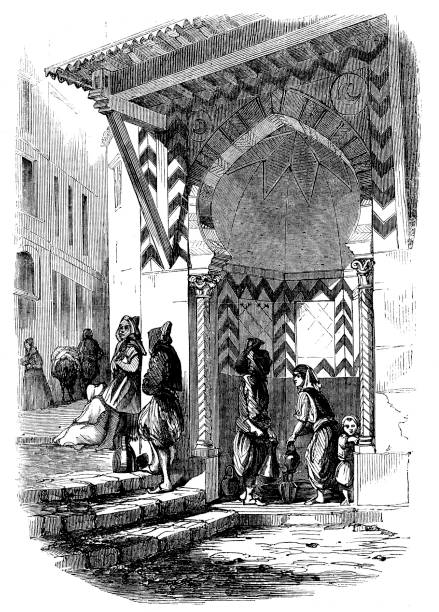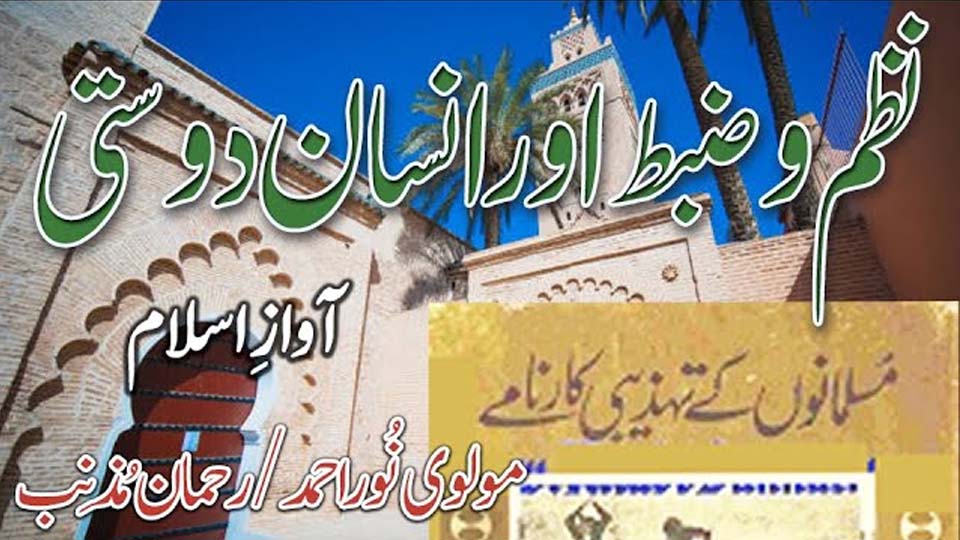Islam is a religion of enlightenment that harmonizes spiritual and material needs, a truth evident in the civilization and respect for humanity imparted by early Muslims. This blog explores the immense contributions of Islam and its scholars to the world, challenging the narrative that credits modern progress solely to the West. Let’s delve into how the glories of Islam continue to inspire and shape humanity.
The Forgotten Contributions of Islamic Scholars
Throughout history, Islamic civilization has been a beacon of knowledge and innovation. From medicine to mathematics, the contributions of Muslim scholars remain unparalleled. Despite efforts to obscure these achievements, terms like “algebra” and “algorithm” still reflect their Arabic origins.
For instance, the renowned mathematician Al-Khwarizmi laid the foundation of algorithms, revolutionizing mathematics. Similarly, the medical encyclopedia “Al-Qanun” by Ibn Sina (Avicenna) was a cornerstone in European universities for centuries. These works exemplify the glories of Islam, where intellectual pursuit was intertwined with spirituality.
Islam’s Principles of Humanity and Respect
The glories of Islam extend beyond scientific achievements to profound principles of humanity. Islamic teachings emphasized compassion and justice, even during times of war. Western historians have acknowledged that Muslim armies refrained from targeting non-combatants, desecrating places of worship, or destroying cities.
This ethos of respect and restraint contrasts sharply with the destructive conquests often associated with other civilizations. Such values, rooted in Islamic teachings, remind us of the moral high ground upheld by early Muslims.
The Role of Islamic Educational Institutions
During the golden age of Islam, cities like Cordoba, Granada, and Toledo were hubs of learning and culture. Their libraries, housing hundreds of thousands of manuscripts, attracted scholars worldwide. These institutions exemplify the glories of Islam, fostering an environment where knowledge thrived irrespective of religious or cultural boundaries.

Western travelers, inspired by the advancements in these centers, carried back knowledge that spurred the Renaissance. The impact of Islamic education on global progress remains undeniable.
Challenging Misconceptions About Islam
A pervasive misconception exists that innovation and progress are exclusive to Western civilization. However, the glories of Islam challenge this narrative, showcasing a legacy rich in intellectual and cultural achievements.
Books like Glories of Islam by Molvi Noor Ahmed provide detailed accounts of these contributions. Though published decades ago, this work remains a testament to the enduring influence of Islamic civilization. Its Urdu translation by Rahman Mazhab highlights how Islam’s principles continue to resonate with modern readers.
Why Recognizing the Glories of Islam Matters Today
Acknowledging the glories of Islam is not merely about revisiting the past; it’s about drawing inspiration for the present. The harmonious blend of spirituality and intellect demonstrated by early Muslims offers a blueprint for addressing contemporary challenges.
As the world grapples with polarization and cultural misunderstandings, the inclusive and progressive spirit of Islam’s golden age serves as a guiding light. It underscores the potential of unity and the pursuit of knowledge in fostering global harmony.
Conclusion The glories of Islam are a testament to the profound impact of Islamic civilization on humanity. From groundbreaking scientific discoveries to principles of compassion and justice, Islam’s legacy continues to inspire. By revisiting this rich heritage, we can challenge stereotypes and build a future that values knowledge, respect, and unity.
If you’re interested in reading this book, click the link below for a free download.
https://drive.google.com/file/d/184KAehghckBWMzrB9GW9a4zl6xFWXa35/view?usp=sharing
If you’d like to listen to this book in audio format, click the CONTACT button below to get in touch with the AwazeUrdu team to order the audiobook.
You can also watch the same video on these social media platforms.
یہ بات روزِروشن کی طرح عیاں ہے کہ اسلام اور قرونِ اولیٰ کےمسلمانوں نےجوتہذیب وتمدن دنیاکودیاہےاور انسانیت کاجتنا احترام سکھایاہے، وہ کسی اورمذہب نےنہیں دیا۔ اسلام روشن خیالوں کا مذہب ہے ، جوروحانی اور مادی تقاضے بیک وقت پورےکرتاہے۔ حقیقت ہے کہ اہل مغرب نے بالعموم ہمارے جید علماء،سائنسدانوں اور مفکروں کے مفید کارناموں پر پر دے ڈالے۔ آج عام طور پر یہی سمجھا اور مانا جاتا ہے کہ جدیدسوچ کا سرچشمہ یورپ ہے ہر نئے خیال کا ماخذ مغرب کا سفید انسان ہے، ترقی و خوشحالی صرف مغرب کے لیے مقدر ہوتی ہے۔ مسلمانوں کا کہیں ذکر ہی نہیں۔
کیسی عجیب بات ہے کہ مسلمان مؤجدین ومفکرین کو گنام کرنے کی مسلسل کوششوں اور منصوبہ بندیوں کے باوجود علوم و فنون کی کئی شاخوں . کے عربی نام اور کئی سائنسی اسلامی اصطلاحات پھر بھی باقی رہ گئیں ۔ الگورزم در اصل الخوارزمی کی عطاء کی ہوئی حساب کی ایک نئی شاخ ہے۔ اکائی سے دہائی یعنی دائیں سے بائیں ہند سے لکھنے کا عربی طریقہ من وعن انگریزی میں بھی رائج ہے ۔ “الجبرا” کا لفظ اپنے عربی الاصل ہونے کی غمازی کرتا ہے۔ ابھی دو تین صدی پہلے بوعلی سینا کی طبّی انجیل “القانون”، اور دوسرے مسلمان علماء کی کتا ہیں یورپ کی یونیورسٹیوں میں نصاب کے طور پر پڑھائی جاتی تھیں اور پھر اہل مغرب کے سیاح جس بے قراری اور جنز بہ شوق سے قرطبہ غرناطہ اور طلیطلہ جاتے ہیں وہاں اندلسی مسلمانوں کے تاریخی آثار کے سوا اور رکھا ہے؟ یہیں کی بے نظیر درسگاہوں اور کئی کئی لاکھ نسخوں سے لبریز کتب خانوں سے انھوں نے فیض پایا اور اپنی برگشتہ تقدیر بدلی –
اس موضوع پرمولوی نوراحمد صاحب نے 1958ءمیں
Glories of Islam
کےنام سےکتاب لکھی،جسے فیروزسنزنےشائع کیا۔(مجھے کوشش کےباوجوداصل کتاب اور مصنف کی تصویرنہیں ملی)، جس کااردوترجمہ رحمان مذنب نےکیاہے۔آوازِاسلام کی اس ویڈیومیں اس کتاب کا ایک اقتباس پیش کیاگیاہے، جومسلمانوں کےفوجی نظم وضبط اوردورانِ جنگ بھی انسان دوستی کا اصول قائم رکھنےکےبارے میں ہے، جس کامغربی مؤرخین نےبھی برملااعتراف کیاہے۔ مسلمانوں نےکبھی جنگ کےدوران شہروں کواجاڑا نہ عبادت گاہوں کوتاراج کیا۔ غیرفوجیوں کوقتل کیا نہ بوڑھوں، عورتوں اوربچوں کےساتھ کوئی زیادتی کی۔ اپنےسپہ سالار کی اطاعت اس حد تک کی کہ اپنی نگاہ کوبھی ان کےحکم کےبرخلاف استعمال نہ کرتے تھے۔
یہ بلند پایہ کتاب ان تمام امور کو نہایت عمدگی سے عیاں کرتی ہے۔ وہ لوگ جو اسلام کو قدامت پرستوں کی میراث سمجھتے ہیں اس کتاب کو پڑھ کر اپنے خیالات میں ترمیم واصلاح کریں گے۔

